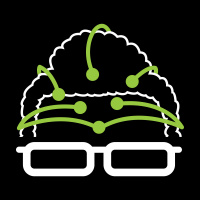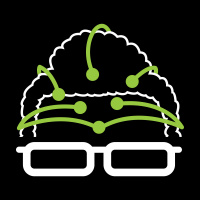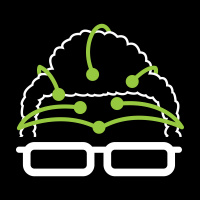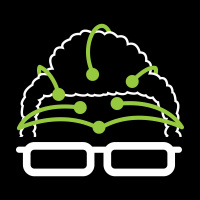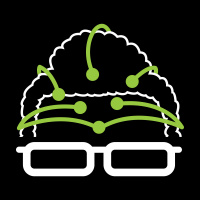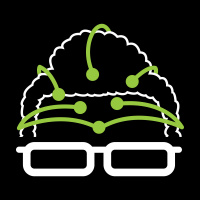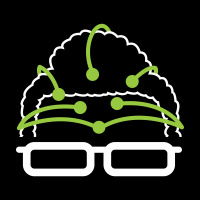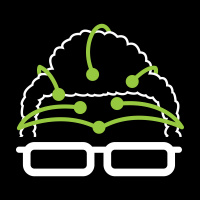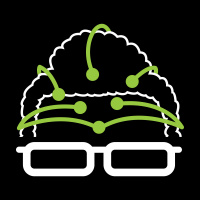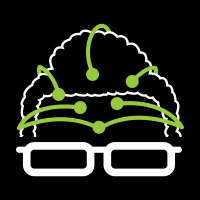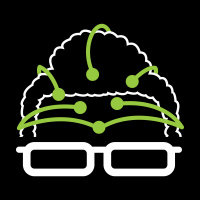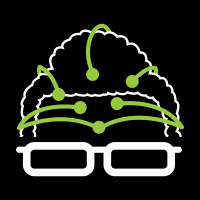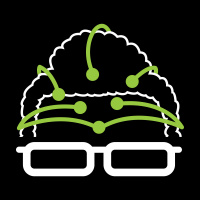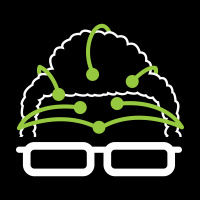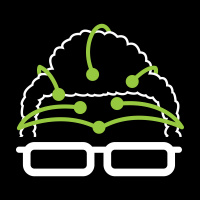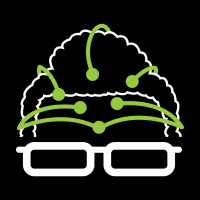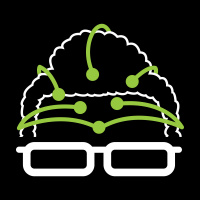Synopsis
Dharma in the Age of the Network
Episodes
-
Mahamudra in the Modern World
27/07/2015 Duration: 28minDr. Reggie Ray is an author, teacher, and the Spiritual Director for the Dharma Ocean Community in Crestone, Colorado. He has forty years of study and intensive meditation practice within the Tibetan Buddhist tradition in the lineage of Chögyam Trungpa Rinpoche. Recently, Dr. Ray published an audio training series through Sounds True titled Mahamudra in the Modern World. In this episode Dr. Reggie Ray and host Vincent Horn discuss the basics of the Mahamudra tradition and Reggie’s approach to teaching it. He shares his insight into how his personal practice has changed and deepened through teaching, and he answers questions such as: Is a personal relationship with a teacher necessary? And, how does one know when it’s time to start teaching? This is part one of a two part series. Listen to part two – BG 282: Specializing in Letting Go Episode Links: The Forest Dwelling Yogi ( http://bit.ly/1MRDNuI ) Dharma Ocean ( http://www.dharmaocean.org )
-
The Naked Monk
27/07/2015 Duration: 38minStephen Schettini is an author and blogger at TheNakedMonk.com, and a teacher of Mindful Reflection. He was a Tibetan Buddhist monk for 8 years before he left the monastic path and began referring to himself as an ex-Buddhist. In this episode Stephen talks with host Vincent Horn about why he left his monastic order and what he learned from the experience. They discuss why people are drawn to formal religious orders and guru-disciple relationships, and Stephen describes possible alternatives to the guru-disciple dynamic that might be more appropriate for the modern world. Finally, after questioning the very existence of the historical Buddha, they discuss why the myth might be more important than the story of the historical man. Episode Links: The Naked Monk ( http://www.thenakedmonk.com ) “Sick Love” ( http://www.thenakedmonk.com/2013/01/14/sick-love/ ) “Zen Buddhists Distressed by Accusations Against Teacher” ( http://nyti.ms/12MlZgW ) The Novice ( http://amzn.to/12MlVxs )
-
Finding Authority Outside of Tradition
27/07/2015 Duration: 23minTed Meissner is the host of The Secular Buddhist podcast and the Executive Director of the Secular Buddhist Association. In this episode host Vincent Horn concludes his conversation with Ted by exploring the role of Tradition in secular Buddhism. They consider the question of spiritual authority in secular Buddhism and whether it’s possible to see through the filter of culture and tradition. This is part two of a two part series. Listen to part 1: Secular Buddhism. Episode Links: Secular Buddhism ( http://bit.ly/1MRDsbA ) The Secular Buddhist Association ( secularbuddhism.org ) The Secular Buddhist Podcast ( secularbuddhism.org/the-secular-buddhist-podcasts/ )
-
Secular Buddhism
27/07/2015 Duration: 32minTed Meissner is the host of The Secular Buddhist podcast and the Executive Director of the Secular Buddhist Association. In this episode with host Vincent Horn, Ted shares examples of secular Buddhism, why he is skeptical but not cynical about religion, and he stresses what he thinks is the importance of right speech in the modern world. This is part one of a two part series. Episode Links: The Secular Buddhist Association ( http://secularbuddhism.org ) The Secular Buddhist Podcast ( http://secularbuddhism.org/the-secular-buddhist-podcasts/ )
-
Start-up Thinking and Buddhist Lineage
27/07/2015 Duration: 32minLawrence Levy is a student of Segyu Rinpoche and a former CFO and board member at Pixar Animation Studios. He left his role as an executive at Pixar in 2000 to pursue a study of religion and philosophy, which led him to Buddhism. In this episode, Lawrence speaks with host Rohan Gunatillake about working at Pixar, the lessons he learned at the company, and how he has applied those lessons to building the Buddhist organization the Juniper Foundation. Episode Links: Juniper Foundation ( http://www.juniperpath.org ) Awakening the Mind ( http://www.juniperpath.org/works/A7614E/Awakening+the+Mind/ ) Pixar ( http://www.pixar.com )
-
The Artistic Path is the Crooked Path
27/07/2015 Duration: 30minJohn F. Simon is a visual artist and software programmer whose work can be found in prominent museum collections such as the Museum of Modern Art, the Solomon R. Guggenheim Museum, and the Los Angeles County Museum of Art. He was also one of the app designers on the world’s first app album, from Björk, called Biophilia. In this episode we speak with John about his long-standing search for the source of creativity, and how that search has led him to explore a contemplative Buddhist practice. During the discussion with host Vincent Horn, John describes the strategy he uses to search for the source of his creativity and the parallels his strategy shares with meditation teacher Daniel Ingram’s progress of insight map. Episode Links: www.iclock.com John’s profile at the Gering & Lopez Gallery ( http://www.geringlopez.com/artists/john-f-simon-jr ) Björk’s Biophilia ( http://bjork.com/#/past/discography/biophilia )
-
Buddhism, Technology, and Quarter-Pounders
25/07/2015 Duration: 27minBuddhist Geeks Vincent Horn and Rohan Gunatillake conclude their interview for the KGNU public radio program Sacred Lines by further discussing the intersections between Buddhism and Technology. From the efficacy of mindfulness apps to the ubiquitous question of duality, the Geeks explore what it means to be Buddhist in a technologically advanced world. This is part two of a two part series. Episode Links: CU’s Center for Media, Religion, and Culture ( cmrc.colorado.edu/about ) KGNU ( www.kgnu.org ) buddhify ( buddhify.com )
-
Fifty Shades of Geek
25/07/2015 Duration: 29minIn a recent interview for the KGNU public radio program Sacred Lines, Buddhist Geeks Vincent Horn and Rohan Gunatillake have a discussion about what it means to be a modern Buddhist practitioner, how technology can complement Buddhist practice, and how geekery and meditation meld. They use the Buddhist Geeks project and buddhify mobile app as illustrations of how they’re experimenting with these various topics. This is part one of a two part series. Episode Links: CU’s Center for Media, Religion, and Culture ( http://cmrc.colorado.edu/about ) KGNU ( http://www.kgnu.org ) buddhify ( http://buddhify.com )
-
The Witness
25/07/2015 Duration: 24minJonathan Blow is an indie game designer most well known for his time-bending game Braid. In this episode we conclude our conversation with Jonathan by exploring his upcoming game, The Witness, as well as his in-depth exploration of non-duality. This is part 2 of a two part series. Listen to part 1, Quantum Gaming. Episode Links: The Witness ( http://the-witness.net ) Myst ( http://en.wikipedia.org/wiki/Myst ) Nondualism ( http://en.wikipedia.org/wiki/Nondualism ) On Being ( http://www.onbeing.org )
-
Quantum Gaming
25/07/2015 Duration: 26minJonathan Blow is an indie game designer most well known for his time-bending game Braid. In this episode Jonathan describes his journey from a kid fascinated with playing video games in arcades to a game developer concerned with game design as a spiritual practice. This is part one of a two part series. Episode Links: Braid ( http://en.wikipedia.org/wiki/Braid_(video_game) ) The Witness ( http://the-witness.net )
-
Contemplative Design: Less is More
25/07/2015 Duration: 22minMichaël Harboun wants to design products that find a balance between inner contemplation and external technology. In this conversation we explore things like transpersonal social networks and speak about the way that gaming can be contemplative (Michael would like to simply call video games “experiences”). We also discuss the idea of “Contemplative Design”, how it works, and how it can lead to innovation in consumer products. This is part two of a two part series. Episode Links: www.MichaelHarboun.com Transcendenz ( https://vimeo.com/25771444 ) www.IDEO.com
-
Transcendenz & Anti-Time
25/07/2015 Duration: 32min“We can only see what we’ve become conscious of.” – Michaël Harboun Michaël Harboun wants to design products that find a balance between inner contemplation and external technology. The concept video for his augmented reality project Transcendenz illustrates the positive potential of finding such a balance. In this episode Michaël and host Vincent Horn discuss the philosophical goals of Transcendenz, the fact and fiction of the current state of some of the technologies portrayed in the concept video–like augmented reality and computer brain interfaces–and finally the way that Buddhist thought has influenced this project. This is part one of a two part series. Episode Links: www.MichaelHarboun.com Transcendenz ( https://vimeo.com/25771444 ) www.IDEO.com Thomas Nagel’s Bat Experiment ( https://en.wikipedia.org/wiki/Thomas_Nagel ) Augmented Reality ( https://en.wikipedia.org/wiki/Augmented_reality ) Google’s Project Glass ( https://en.wikipedia.org/wiki/Project_Glass ) Emotiv ( http://emotiv.com ) InteraXon : Th
-
The Path of Centering Prayer
25/07/2015 Duration: 14minDavid Frenette is a senior teacher in the Centering Prayer movement–a contemplative Christian practice that was designed by Father Thomas Keating. He’s also the spiritual director at the Center for Contemplative Living in Denver, and the author of The Path of Centering Prayer: Deepening Your Experience of God. In this episode, David describes the similarities and differences between Buddhist and Christian practice, the benefit of surrender, and the Christian Contemplative tenet of “the God within serves the God in other people.” This is part two of a two-part series. Episode Links: The Path of Centering Prayer: Deepening Your Experience of God ( http://amzn.to/VFpGRY ) Incarnational Contemplation ( http://www.incarnationalcontemplation.com ) Center for Contemplative Living in Denver ( http://www.contemplativeoutreach-co.org )
-
Meditating with God
25/07/2015 Duration: 46minDavid Frenette is a senior teacher in the Centering Prayer movement–a contemplative Christian practice that was designed by Father Thomas Keating. He’s also the spiritual director at the Center for Contemplative Living in Denver, and the author of The Path of Centering Prayer: Deepening Your Experience of God. In this episode, David describes his path from Zen to Christianity and how he uses the practice of Centering Prayer to deepen his experience of God. This is part one of a two part series. Episode Links: The Path of Centering Prayer: Deepening Your Experience of God ( http://amzn.to/VFpGRY ) Incarnational Contemplation ( http://www.incarnationalcontemplation.com ) Center for Contemplative Living in Denver ( http://www.contemplativeoutreach-co.org )
-
It's a Jungle in There
25/07/2015 Duration: 21minIn this episode, taken from the Buddhist Geeks Conference 2012, Daniel Ingram talks about the ways that contemplatives could learn from the Naturalists. The Naturalists excelled in meticulous exploration, descriptive science, and classification. Their example can serve as the foundation for the next step in contemplative advancement, where the vast spectrum of inner experience, could be described and cataloged in an entirely new way. Episode Links: Daniel Ingram ( http://www.integrateddaniel.info ) Mastering the Core Teachings of the Buddha ( http://amzn.to/Ri7No5 )
-
Mindful Binge Drinking and Blobology
25/07/2015 Duration: 22minWilloughby Britton, contemplative scientist and neuroscience researcher, spoke at the Buddhist Geeks Conference 2012 about mixing Dharma with scientific enterprise. Scientific research of meditation is undoubtedly one of the forces behind the proliferation of the Dharma, and offers much promise as a “Dharma technology”. However, Britton asserts that significant challenges remain before we can harness the full power of scientific enterprise. Episode Links: Willoughby Britton at Brown University ( http://research.brown.edu/myresearch/Willoughby_Britton ) Britton Lab ( http://www.brittonlab.com )
-
Creativity Without Grasping
25/07/2015 Duration: 17minIn this episode, taken from the Buddhist Geeks Conference in 2012, Martine Batchelor explores the process of grasping and its amplifying/exaggerating effects. She also goes into how meditation can help us to de-grasp/release our holding thus allowing for a more creative engagement and creative response. Episode Links: www.martinebatchelor.org
-
McLuhan and Buddhism: How is the Medium Changing the Message?
25/07/2015 Duration: 26minWhat is the message of Buddhism today? Self-improvement? A fulfilling life? An understanding of the mysteries of the human condition? How does McLuhan’s famous dictum “the medium is the message” apply now that people are connecting with Buddhism in radically different ways? In this episode, taken from the Buddhist Geeks Conference in 2012, Ken McLeod explores how McLuhan’s famous dictum “the medium is the message” might apply to Buddhism. Episode Links: Unfettered Mind ( www.unfetteredmind.org )
-
The DNA Sutra
25/07/2015 Duration: 31minRichard Eskow is a writer, consultant, and musician, who is a senior fellow with a public policy group. In this episode, Richard discusses with host Vincent Horn a recent article he wrote for Tricycle Magazine called DNA Sutra. For the piece he had his DNA analyzed to have his ancestry traced all the way back to the “first mother”. He describes how the process has led him to a greater understanding of karma, the conditions that connect himself with his adversaries, and his greater connection to all of humanity. Episode Links: DNA Sutra ( http://www.tricycle.com/feature/dna-sutra ) 23andme ( https://www.23andme.com ) Tricycle Magazine ( http://www.tricycle.com )
-
The Emerging Science of Mindfulness Meditation
25/07/2015 Duration: 35minDavid Vago, an instructor of psychology at Harvard Medical School, has held the position of Senior Research Coordinator for the Mind & Life Institute, a not-for-profit organization dedicated to fostering dialogue and research at the highest possible level between modern science and the great living contemplative traditions. In this episode David relates how his personal mindfulness practice has integrated with his professional scientific research. He talks about the thriving community of scientists interested in mindfulness that has taken root in contemporary academia and research, and he highlights some current projects and lines of inquiry that have benefited from this uniquely supportive atmosphere. Episode Links: www.ContemplativeNeurosciences.com Mind and Life Institute ( http://www.mindandlife.org ) The Dark Night Project ( http://bit.ly/1gc7P2j ) Mapping the Mindful Brain ( http://bit.ly/1gc7Weo ) Contemplative Mind in Life ( http://contemplativemind.wordpress.com )

